
How to Prepare for a Successful Swim Meet
Ready to uncork some best times at your next swim meet? Here’s what you need to know to prepare for a swim meet.
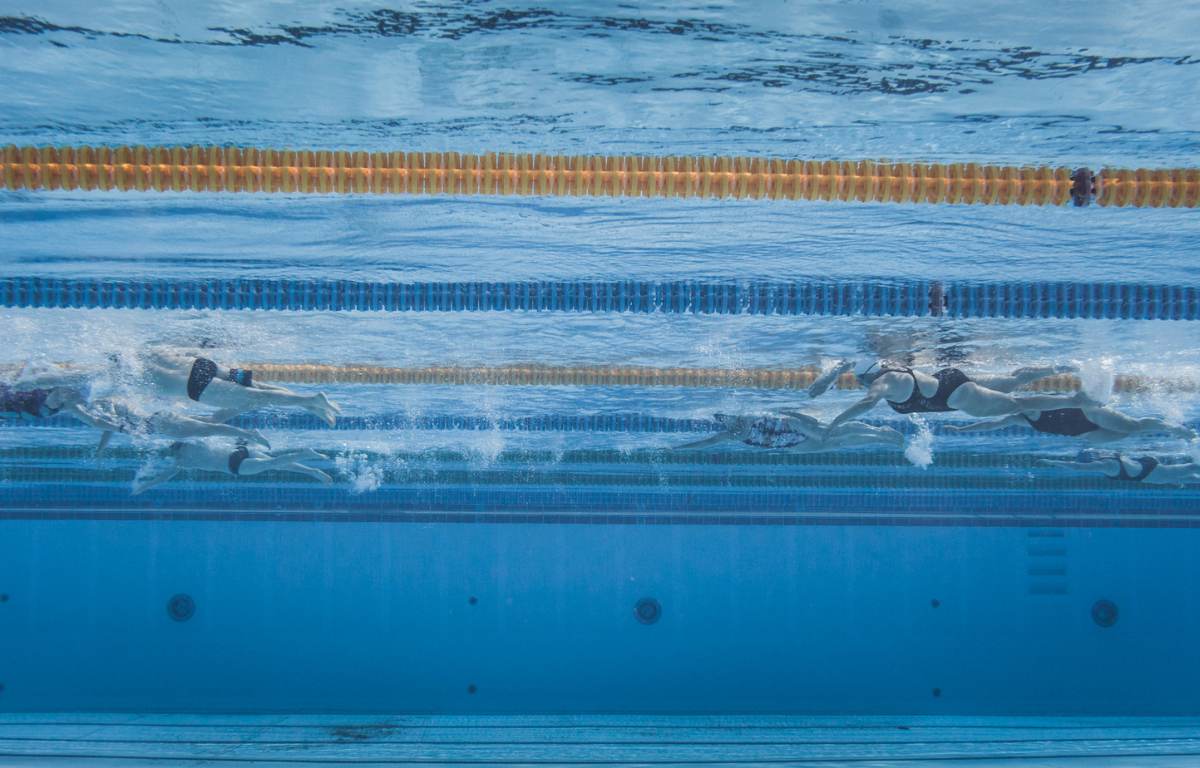
Swimming fast is just as much a mental game as it is a physical endeavor.
And one of the key things that swimmers can do to level up their mindset skills in the water…
And learn what it takes to swim faster, err, faster…
Is by spending time reviewing and analyzing their performances.
Here’s what I mean.
Big Swims… and in this case, I am bundling both swim workouts and individual races at swim meets because in both cases, you are trying to excel and are pushing your limits… have three phases:
Plan/prep — Everything related to the lead-up to the Big Swim, including warming up, meals, mental training, goal setting, and so on.
The Big Swim — This could be the main set of a swim practice or the race itself. This is where we (obviously) focus a lot of our attention and where our plans and preparation are unleashed on the pool (and hopefully our PBs, too)
Reflection/feedback – Once the workout, race, or meet is done, it’s reflection time. It can be organized in some way (in a journal or formal conversation with your coach), but here is when you look back on the swim and try to objectively assess how things went.
Swimmers tend to spend all of their energy on the first two phases.
Prepping.
Planning.
Swimming with all their heart and soul.
But the third phase is where the chlorinated butter hits the toast and melts into future progress.
Because that is where you LEARN.
Done properly, which means as objectively as possible and ideally with constructive feedback from your coach, you:
Learn what you need to do to get better by identifying things you can improve and leveraging the things you are doing well…
In other words:
You are learning what works and what needs to be worked on.
Why don’t swimmers reflect more often?
For starters, some swimmers, and I am not going to name names, don’t reflect but dwell on performances.
This means that when they look back on a disappointing swim, instead of seeing lessons that power future progress, they see reasons to feel down on themselves now and in the future, too.
And secondly, many swimmers simply want to move on and not think about a bad performance because, well, it stings.
In both cases, I get it, but you are stacking the loss of lessons potentially learned on top of a bad performance.
Double the serving of ouchies.
For article version:
Performance-oriented reflection can take a lot of different shapes and forms.
Some swimmers are naturally highly analytical and thrive on breaking down their swim by splits, stroke counts, push-off distance, breaths per lap, and so on. Others are good enough with a short talk with their swim coach.
Whatever the case, performance-oriented reflection doesn’t have to be that complicated (or time-intensive).
Here are some ideas for reflecting on your performances so that you can move forward intelligently and laser-focused on getting even better.
A simple way to analyze a race or huge main set is simply breaking down, on a sheet of paper, the things you did well on one side (pros) and the things you can improve upon (cons).
This exercise is even more powerful when you arrange the cons by the amount of potential improvement.
For example, if you list “Could have worn a faster swim cap” and “could drop two seconds by improving my dive and turns,” the latter should be at the top of the list, and the former could probably be relegated back to the equipment bin.
A pros and cons list gives you a balanced look at your performance so that you are seeing—on paper, and not just ruminating or thinking about it—what you think of your performance and begin the process of spotting the things that will yield the most improvement in the future.
You’d be surprised at how much momentum and creative planning you can build from this exercise.
One of the most frequent emails I receive from swimmers is a variation of “I’m not the coach’s favorite, so they don’t pay any attention to me.”
The only answer I can offer, given my nearly complete lack of knowledge or context of their specific situation, is to ask if they’d approached their coach about helping them fix a particular skill or weak spot in their swimming.
The answer is almost always no.
You’d be surprised at how rarely swimmers generally approach their coaches to solicit feedback. Seek their input and feedback. Ask how you can be better.
Even just the first request will likely get you more feedback in the future because now they know you are looking for it.
Swimmers should maintain a logbook for their swim practices, sure, but also for competition.
Log the splits and results, and then add some commentary on each performance. What you thought about the dive. How you stuck to your race strategy. The way you dealt with the nerves. How crisply you exited your streamlines. And so on.
Logging and reflecting on your swims are a form of self-coaching that helps you become significantly more aware of what you are doing in the water.
You will start to see patterns among your great swims, good swims, and the not-so-good swims.
Logbooks are an excellent reflection tool for swimmers to peek under the hood of their swimming for themselves and learn what makes each swimmer tick.
With each Big Swim, whether it’s a seemingly never-ending threshold set on a rando Wednesday morning or anchoring the medley relay on the final night of your last meet of the year with a gold medal on the line, you are learning.
Win = you learn.
Lose = you learn.
Take the time to sit down after Big Swims and acquire the lessons.
You have already put in the work, invested all that effort, so let’s make progress in the future even simpler by learning what works and what needs to be worked on.

Olivier Poirier-Leroy Olivier Poirier-Leroy is the founder of YourSwimLog.com. He is an author, former national level swimmer, two-time Olympic Trials qualifier, and swim coach.
✅ Free shipping on Orders over $49
✅ Price Match Guarantee
✅ Best selection of gear for training and competition
✅ Fast and Easy Returns

“This is the best book I have ever seen concerning mental training.” — Ray Benecki, Head Coach, The FISH Swim Team


Ready to uncork some best times at your next swim meet? Here’s what you need to know to prepare for a swim meet.

The right mental skills can help you unlock faster swimming on race day. Here is a look at the right skills to use for competition.
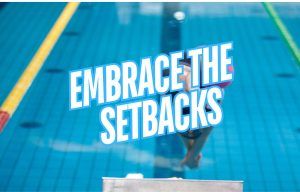
Frustrated with setbacks in the pool? Here are some tips for improving your ability to embrace setbacks and swim faster.
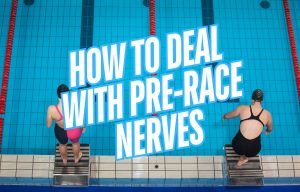
Struggling to swim fast under pressure? Here are some tips for how to manage pre-race nerves on race day.
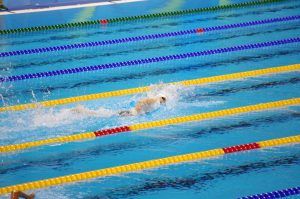
Swimmers often find themselves stuck with doubt when it comes to doing tough things in the water. Here’s a simple question to ask when you find doubt and uncertainty stopping you from excellence.
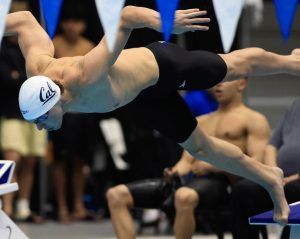
Looking to take your mindset and swimming to the next level? Here are five things you can learn from Jack Alexy, one of the fastest freestylers on the planet.
SITE
SHOP
GUIDES

LANE 6 PUBLISHING LLC © 2012-2025
Join 33,000+ swimmers and swim coaches learning what it takes to swim faster.
Technique tips, training research, mental training skills, and lessons and advice from the best swimmers and coaches on the planet.
No Spam, Ever. Unsubscribe anytime.
